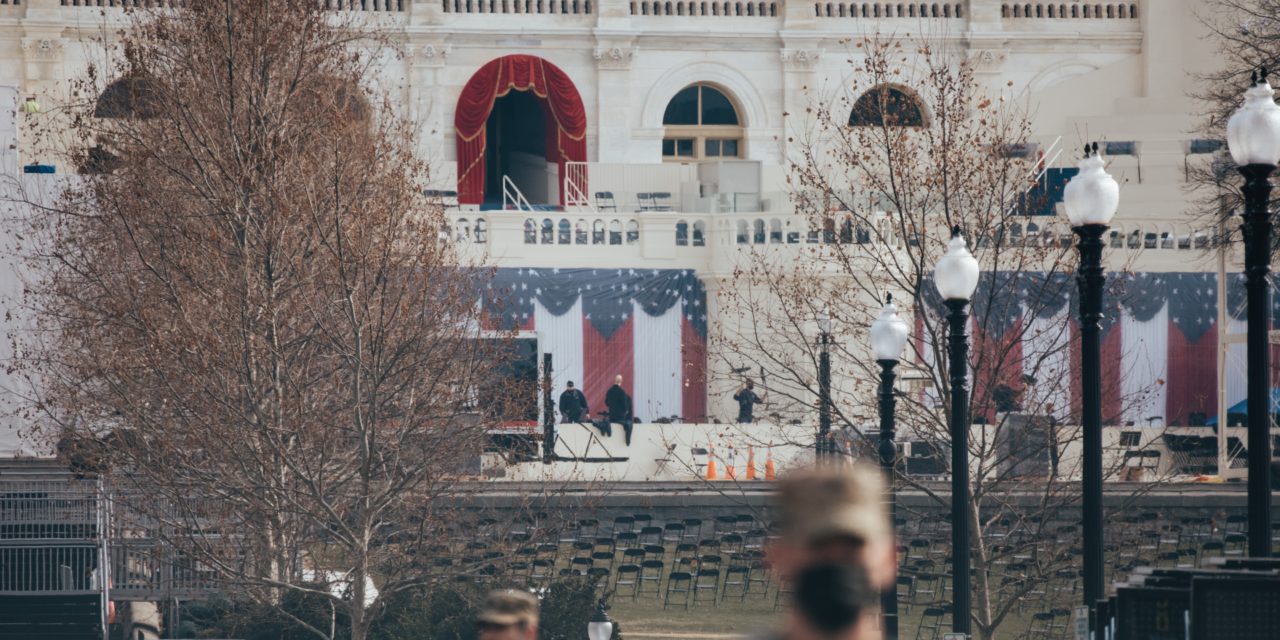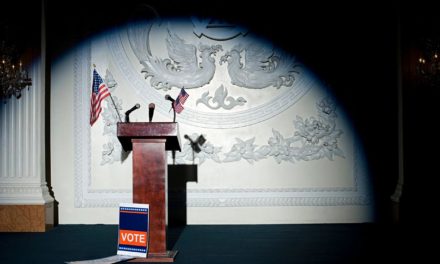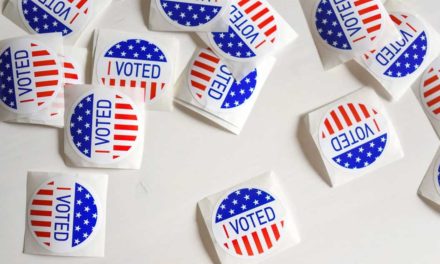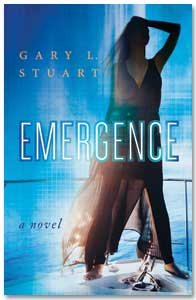What could be more thrilling or daunting than to write the Inaugural Address? I’m talking about the Presidential Inaugural Address. Well, to be clear I’m talking about the ethics of being tasked with that monumental job.
It’s safe to assume the tradition of writing such an august document has been with us since April 30, 1789. The inaugural tradition got off to a shaky start. In 1788, the Confederation Congress scheduled the first presidential inauguration for the first Wednesday in March of the following year. However, the early months of 1789 proved unseasonably cold and snowy, and bad weather delayed many members of the First Federal Congress from arriving promptly in New York City, the temporary seat of government.[1]
President Washington and the members of Congress retired to the Senate Chamber (then in New York City), where Washington delivered the first inaugural address to a joint session of Congress. Washington humbly noted the power of the nation’s call for him to serve as president and the shared responsibility of the president and Congress to preserve “the sacred fire of liberty” and a republican form of government.[2] His eight-page speech was written in ink, longhand, in a quaint form now known as cursive.
It’s also safe to assume that nearly all US Presidents used someone else—a writer—to draft his inaugural speech (so far they’ve all been men). The sole exception to outsourcing the Inaugural Address might be the oft-told story about President Thomas Jefferson writing his own speeches at Monticello and sending someone else to Washington to deliver them.
So far we’ve heard three score and more inaugural speeches written by an unknown number of speechwriters. Many have been memorable and a few soared. None who read or heard JFK’s Inaugural “Ask not what your country can do for you; ask what you can do for your country,” could ever forget those words.
There will always be the question—should we credit the President or should we congratulate his speechwriter, Ted Sorensen, or both? From an ethical perspective, the answer is yes. On grand speeches like the Inaugural, the writers, editors, and speakers work in tandem, like a fine marching band.
Do ethics matter in Inaugural speeches? Or is soaring rhetoric sufficient? The ethics test is truth and honesty. Some presidents have been less than truthful, and proud of it. All presidents have delivered speeches they believed, but were factually inaccurate. Nearly all excuse their little white lies based on what they heard—“Well, people told me . . .”
Honesty and truthfulness are not the same thing. Truthfulness means telling the full truth of a matter. That’s different from honesty. If you write something that is unknowingly untruthful, you could still be honest. One test of honesty is where you heard it, as in I heard it on Fox News or I knew it was political because it was on MSNBC.
Inaugural speeches should be ethically tested in four ways. Incoming or re-elected presidents give inaugural speeches for the sole purpose of informing citizens of their intentions as a leader. But the context of an inaugural speech is different. It is given with either re-election or legacy in mind. The ethical tests should be (a) Trust and Openness, (b) Conscientiousness, (c) Moral Attentiveness, (d) Duty Orientation.
Trust and Openness can be measured by how the speaker addresses organizational culture.
Conscientiousness is obvious when the speaker appears to be careful, reflective, and reliable. It is hidden when the speaker ignores moral reasoning, suggesting instead an antisocial or predatory worldview.
Moral attentiveness is shown in both writing and speaking when ethical issues are part of the speech. Being aware of ethical dilemmas shortens the road to solving them. Ridding the country of racism is an ethical dilemma, but only to those who are morally attentive.
Duty orientation is always found in the words written or spoken by people who are have a strong sense of duty to the job at hand. They are loyal to the country, not just a political party. They are mission-oriented, motivated to act, and focused intently on the express duties of the position they hold. Most important, their speeches and writings will reflect national not personal gains.
With these timeworn ethical tests in mind, the following six chronologically arrayed Inaugural speeches (from 1789 to 2017) are memorable.
George Washington’s first inaugural address –1789. “The preservation of the sacred fire of liberty, and the destiny of the republican model of Government, are justly considered as deeply, perhaps as finally staked, on the experiment entrusted to the hands of the American people.”[3]
Abraham Lincoln’s second inaugural address –1865. “With malice toward none, with charity for all, with firmness in the right as God gives us to see the right, let us strive on to finish the work we are in, to bind up the nation’s wounds, to care for him who shall have borne the battle and for his widow and his orphan, to do all which may achieve and cherish a just and lasting peace among ourselves and with all nations.”
Theodore Roosevelt’s second inaugural address –1905. “Much has been given us, and much will rightfully be expected from us. We have duties to others and duties to ourselves; and we can shirk neither.”
Franklin Delano Roosevelt’s second inaugural address –1937. “Old truths have been relearned; untruths have been unlearned. We have always known that heedless self-interest was bad morals; we know now that it is bad economics.”
Barack Obama’s first inaugural address –2009. “Starting today, we must pick ourselves up, dust ourselves off, and begin again the work of remaking America.”
In context, our last Inaugural speech deserves a more focused ethical testing. It was given by Number 45 in Washington on January 20, 2017. He said:
“This American carnage stops right here and stops right now … For many decades, we’ve enriched foreign industry at the expense of American industry; Subsidized the armies of other countries while allowing for the very sad depletion of our military; We’ve defended other nation’s borders while refusing to defend our own; And spent trillions of dollars overseas while America’s infrastructure has fallen into disrepair and decay. We’ve made other countries rich while the wealth, strength, and confidence of our country has disappeared over the horizon … The wealth of our middle class has been ripped from their homes and then redistributed across the entire world. We assembled here today are issuing a new decree to be heard in every city, in every foreign capital, and in every hall of power. From this day forward, a new vision will govern our land. From this moment on, it’s going to be America First.”[4]
President Washington focused on the “sacred fire of liberty.” President Lincoln focused on “a just and lasting peace among ourselves and with all nations.” President Theodore Roosevelt said, “We have duties to others and duties to ourselves; and we can shirk neither.” President Franklin Delano Roosevelt said, “We have always known that heedless self-interest was bad morals; we know now that it is bad economics.” President Obama said, “We must pick ourselves up, dust ourselves off, and begin again the work of remaking America.” President Trump said, “This American carnage stops right here and stops right now.”
Ethics is an opinion, not a fact. It is a judgment, not a statement. It is vital because without it, it’s just business as usual. Which of these six presidents will stand the test of ethics, morals, and good writing?

I am an author and a part-time lawyer with a focus on ethics and professional discipline. I teach creative writing and ethics to law students at Arizona State University. Read my bio.
If you have an important story you want told, you can commission me to write it for you. Learn how.
[1] https://www.archives.gov/legislative/features/gw-inauguration
[2] Ibid.
[3] All six excerpts are quotes from: https://www.al.com/news/birmingham/2017/01/the_10_most_memorable_quotes_f.html
[4] https://www.whitehouse.gov/briefings-statements/the-inaugural-address/






 I am an author and a part-time lawyer with a focus on ethics and professional discipline. I teach creative writing and ethics to law students at Arizona State University.
I am an author and a part-time lawyer with a focus on ethics and professional discipline. I teach creative writing and ethics to law students at Arizona State University.  My latest novel is Emergence, the sequel to Let’s Disappear.
My latest novel is Emergence, the sequel to Let’s Disappear.  If you have an important story you want told, you can commission me to write it for you.
If you have an important story you want told, you can commission me to write it for you.